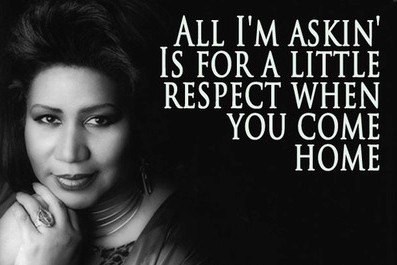R-E-S-P-E-C-T, find out what it means to Creators
This article is a part of a series on the Our Digital Future report, our crowdsourced roadmap for Free Expression that proposes fair and balanced copyright reform for the 21st Century. You’ve all heard of the term “starving artist,” right? If you haven’t -- there’s an entire Wikipedia article on it. There are shelves of books that explore the topic: from a starving artist’s diet to a starving artist’s guide to making it in the Big Apple.
But one avenue that is deserving of further exploration is answering the question:
“Why do we let our artists starve, at all?”
First - it’s important to recognize that when we say artists, we’re not just talking about the Pablo Picassos of the world. “Artists” is a catch-all term that includes painters, graphic designers, comedians and singers. It also includes writers, photographers, game developers, academics, musicians -- the list goes on.
At OpenMedia, we call these people creators, because that’s what they do. They create things that we watch, listen to, read, and consume in all sorts of different ways - things that are expressions of culture that we can share and transform as a means of community-building and understanding the world around us.
Which sounds like a pretty grand and importantproject, doesn’t it?
It must be why, when we asked Internet users from across the globe, they overwhelmingly told us that they wanted artists to stop starving -- that is, they wanted to pay the artists so that they didn’t have to starve anymore.
Recommendation One: Respect Creators from the Our Digital Future report reflects the diverse range of responses we received from our community about ensuring that artists are able to make a fair living off of their work, as well as have access to the resources that will continue to allow them to create.

When asked how much of the revenue from the sale of a creation should go to the artist, 92.5% of respondents to our survey said they wanted to see more than 50% go directly into the creator’s pocket -- and 67% went further and said that they thought 75-100% of the profits should reach the artist.
Compare this finding to traditional revenue models monopolized by Big Media generally give between 16 and 11 per cent of the total royalties to the artist. Taking a look at this infographic from our report, you can see that’s about 20 cents per song on iTunes and less than $2.00 from an $18.00 CD purchase.
As OpenMedia community member Brandon Savage told us when we asked Internet users to go face to face with the TPP:
“As a songwriter, one of the people that overbearing copyright protections are supposed to help, I find [these laws] and other similar ones to be completely contrary to the way my intellectual property should be protected, focusing on the "rights" of the corporate entities who have done nothing but inhibit artists' rights for decades with their outdated business models.”
Which is why we insist that in today’s digital culture, respecting creators includes assurances that they will have access to new ways of getting their work to fans - methods such as YouTube and Spotify are now bringing in more revenue for artists than traditional means (think: signing with a massive record label) and these artists are able to get their works straight to the fans who are eager to pay for it.
Sounds like a win-win. Good for artists, good for Internet users.
But respecting creators means more than just offering them fair compensation. In our report we lay out four key elements that would help creators overcome the barriers to entry that keep many artists starving, and instead ensure they have access to:
- new ways to share their work;
- fair use/fair dealing;
- compensation resulting from copyright infringement;
- and last but not least, a rich public domain
Without these components firmly in place, we run this risk of allowing Big Media conglomerates to keep us trapped in the past when it comes to accessing movies, music, art, and literature by lobbying to create rules around sharing and collaborating that give the advantage to huge, incumbent, vertically-integrated companies like the Motion Pictures Association of America (MPAA), and quite literally starving the artists, who actually do the creating.
Both artists and Internet users recognize that sharing and creativity go together like thunder and lighting: you don’t often get one without the other. The results of our crowdsourcing process were clear: Internet users and creators are on the same team.
What side are you on?
Join the growing pro-Internet community, and stand behind artists. Endorse our report and send it to your decision-maker at www.OpenMedia.org/DigitalFuture.




 Take action now!
Take action now!
 Sign up to be in the loop
Sign up to be in the loop
 Donate to support our work
Donate to support our work